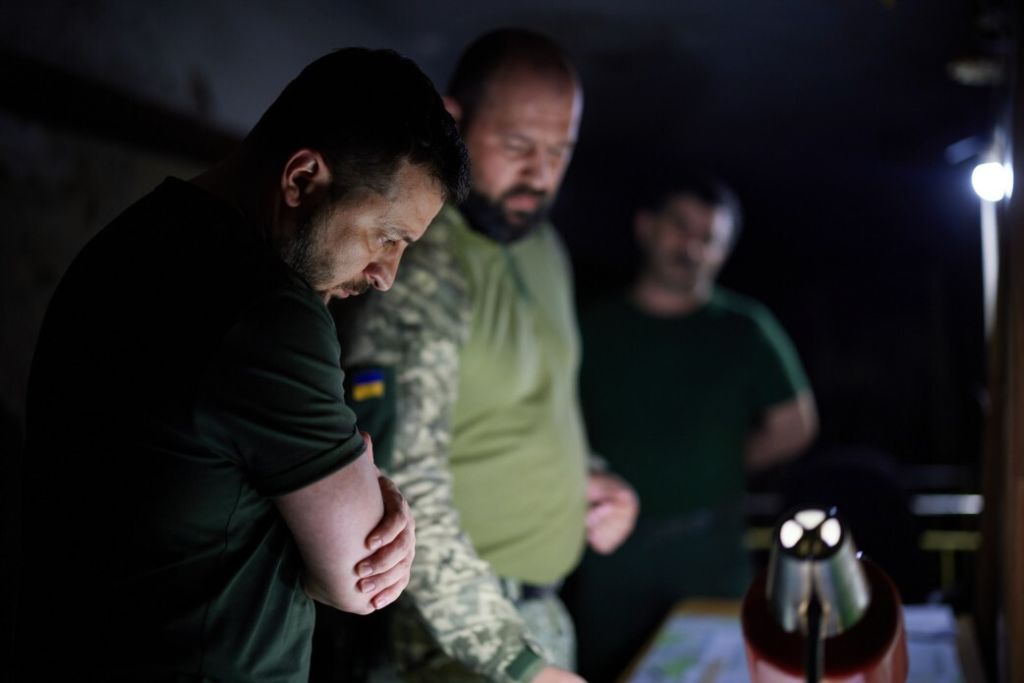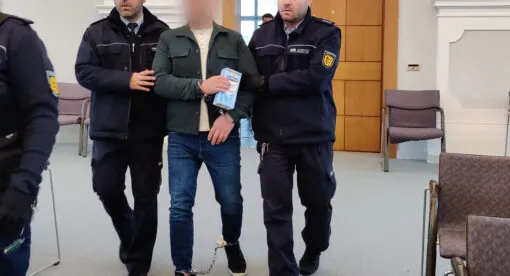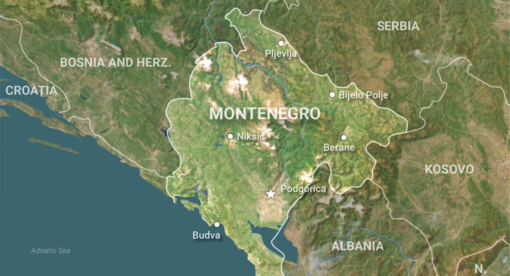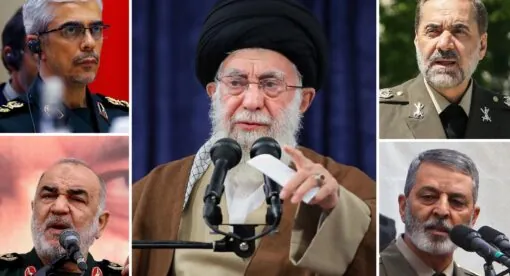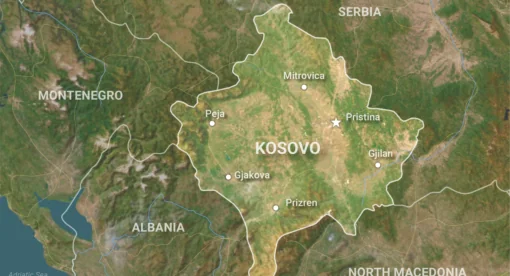Listen to article
After a period of relative quiet, public politics returned to Kyiv this summer in the style seen before the war. Ukrainian President Volodymyr Zelenskyy fired the head of the Security Service of Ukraine (SBU), a number of regional SBU heads, and his prosecutor general in July. There was also a presidential decree circulating in July (though not officially registered or seen with Zelenskyy’s signature) that allegedly stripped Ukrainian citizenship from a number of people, including three significant political figures.
The housecleaning at the SBU was not surprising, given the incompetence and betrayal in the organization that gave Russia control over Kherson at the beginning of the war, but the firing of the prosecutor general and the targeting of Zelenskyy’s presumed political patron, Ihor Kolomoisky, were unforeseen. These measures merit pause among those who stand behind Ukraine, especially for how they reflect on the democracy Ukraine is fighting to defend.
Ukrainian commentators trace these moves to Zelenskyy’s chief of staff, Andriy Yermak. Censor.net editor Yuri Butusov sees the decisions to replace Prosecutor General Iryna Venediktova and SBU head Ivan Bakanov as consolidating control of Ukraine’s security organs under Yermak and his deputy, Oleh Tatarov. It was not surprising that senior pro-Russian politician Vadym Rabinovych was cracked down upon.
When it comes to the most notable figure to have his citizenship allegedly stripped, Kolomoisky – an oligarch and widely presumed to be Zelenskyy’s main patron – Zelenskyy likely concluded that he has all the legitimacy and political power he needs, and his administration likely felt it had the ability to strike at Kolomoisky for a perceived transgression. That transgression, as The New Voice of Ukraine reports, was Kolomoisky’s former deputy in Dnipropetrovsk Oblast, Hennady Korban, being involved in a letter sent by U.S. Republican Representative Victoria Spartz to the Biden administration questioning Yermak’s loyalty to Ukraine. Korban was the third significant figure to have his citizenship reportedly stripped.
The return of convoluted public politics to Ukraine poses risks to both the war effort and Ukrainian democracy. Ukraine needs competence from its leaders and their direct subordinates. If pliability and subordination to cliques within the presidential administration become a greater priority than job performance, Ukraine could lose its path to victory in the war. Moreover, Zelenskyy, his advisers, and his security organs must never forget that the focus upon Ukrainian politics has never been higher. Zelenskyy has turned timid European security paradigms on their heads by convincingly presenting his country’s fight as a battle for European democracy. His administration must remember that with some of Ukraine’s backers hurting tremendously this winter, they must not be given excuses to abandon Ukraine.
On the other hand, Ukraine’s partners concerned over the direction of Ukrainian democracy should understand that even if Zelenskyy and his administration were inclined to consolidate power anti-democratically, the reality of Ukrainian politics makes it unlikely.
Firstly, while an intense fandom has emerged around Zelenskyy in the West, there is nothing resembling a cult of personality developing around him in Ukraine. During time spent in Ukraine, this author has observed that public expressions of martial spirit are overwhelmingly organic, and they glorify Ukraine’s defenders, its historical struggle for nationhood, and the heart of its people rather than hailing the current leader or exulting in a cult of past imperial grandeur.
At his 2019 inauguration, Zelenskyy told Ukraine’s parliament that “I really do not want my pictures in your offices, for the president is not an icon, an idol or a portrait. Hang your kids’ photos instead, and look at them each time you are making a decision.” Despite the war and the hero worship of him in the West, neither Zelenskyy nor the Ukrainian people have turned their back on that message. People in the author’s Ukrainian social networks feel free to criticize their president when they disagree with his conduct, and there will be things Zelenskyy has to answer for when he and his party go before the voters in the coming years. The Ukrainian people are ferociously dedicated to the fight Zelenskyy is leading, but Zelenskyy will have to earn the right to continue leading that fight.
Second, while Zelenskyy’s administration has tightened its grip on Kyiv’s organs of power and his Servant of the People party has an absolute majority in the parliament, his party lacks well-developed national infrastructure. Servant of the People only came into working existence during the snap parliamentary elections of 2019, and while it performed the best of all national parties in the 2020 local elections, it was overwhelmingly outperformed by locally based political parties organized by local elites. Zelenskyy does not have a powerful, nationwide base of party operatives to turn to in order to secure loyalty on all levels of Ukrainian politics. Even Zelenskyy’s use of his Big Construction program (which liberally dispensed funds earmarked for pet projects around the country) to support his party’s 2020 electoral prospects could not win any major city mayorships, and the party holds the largest faction in only four regional councils.
Third, as this author witnessed as an election observer in Ukraine at dozens of polling stations in six different votes in 2019 and 2020 (including presidential, parliamentary, and local elections), Ukraine’s voting system is highly resilient against falsification. While less-than-reputable practices in electoral campaigning are unfortunately common, the balloting process itself involves strong countermeasures against fraud and is closely observed by all competing parties, a robust civil society, and international partners. One cannot simply get away with stuffing ballots or altering results. If a politician wants to win office in Ukraine, they must convince enough people to cast ballots for them.
Finally, politics in Ukraine have always been a delicate balancing act between competing oligarch-backed national and regional political patronage clans. These clans are centered around business elites who exercise influence over media outlets, political party networks, and officials within the state. Political parties in Ukraine are not so much defined by ideology as by the patronage clans behind them. To lead the country, the president of Ukraine must have the tacit consent of Ukraine’s political clans. Should the president cause consent to be withdrawn, the country’s political clans can drag their feet on carrying out policy (see the resistance of city mayors during the COVID pandemic to implementing restrictions ordered by Kyiv), launching hostile media campaigns via both the formal outlets they own and through Telegram rumor mills, and banding together to back the offender’s adversaries. And one of the most successful post-Maidan reforms in Ukraine, the decentralization reform that devolved more budgetary and decision-making power to the regional and community level, will add even more strength to the bastions of Ukrainian political pluralism.
This hardwired plurality in Ukrainian politics has, through elections and revolutions, prevented the emergence of political hegemons and clan dynasties. After all, despite Ukrainian politicians never being shy about using government resources for their own political benefit, Ukraine has only ever had one president be re-elected: Leonid Kuchma, who presided from 1994-2005, and whose anointed successor, Viktor Yanukovych, had his fraudulent election overturned in the 2004 Orange Revolution. It remains to be seen whether the war will finally break down the oligarch-centric structure of Ukrainian politics that has existed through its entire independent history, but based on the author’s conversations with sources involved in distributing aid throughout the country, the war has not killed off the competition for influence, resources, and power.
Ukraine’s Western supporters have no clear buttons to push or strings to pull to safeguard the country’s democracy. The West, particularly the Biden administration and the British government, has thrown massive amounts of political capital and physical resources behind the survival of Ukraine, and withdrawing support would be devastating for Ukrainian victory. Ukraine’s Western allies can keep their ears to the ground, use an understated bully pulpit to pressure the Zelenskyy administration to both value competence over clan politics and to avoid damaging the competitive arena of Ukrainian politics, and stay in contact with regional political figures to ensure that the grassroots of Ukrainian politics stay healthy. Periodic public evaluation by the U.S. State Department and/or Congress would be useful in maintaining pressure on the Zelenskyy administration to not stray from the democracy its people are fighting to defend. But ultimately, if the West is committed to Ukraine’s government having sovereignty over the country, it must trust that the Ukrainian political system will use its own safeguard mechanisms and that Ukrainian civil society will keep competitive democracy alive.
Fortunately, even if the intentions of Zelenskyy and his administration are unfriendly to Ukrainian democracy, and however tightly they may try to grip Kyiv’s organs of power, Zelenskyy presides over a system that has strong resilience against authoritarian takeover. A situation akin to how President Vladimir Putin seized autocratic power in Russia is made unlikely in Ukraine by the combination of intense Western scrutiny and Ukraine’s pluralistic distribution of political power. Moreover, Ukraine’s western supporters should understand that even if Zelenskyy manages to seriously damage Ukrainian democracy, it is hard to imagine that the Ukrainian people would be well-served by the alternative should the West cease supporting Ukraine – despotic and genocidal Russian occupation in which Ukrainians lose their state and nationhood.
Joel Wasserman is an analyst who has been working and volunteering in Ukraine since March 2018. He has worked with the Ukrainian news and commentary outlet UkraineWorld and a number of Ukrainian NGOs, in addition to serving as an official observer of Ukraine’s elections with the Ukrainian World Congress and the Organization for Security and Cooperation in Europe. Since relocating from Kyiv shortly before the start of Russia’s full-scale invasion, he has been living in Lviv. He tweets at @joelw_762.
The views expressed in this article are those of the author and not reflective of an official policy or position of the New Lines Institute.

